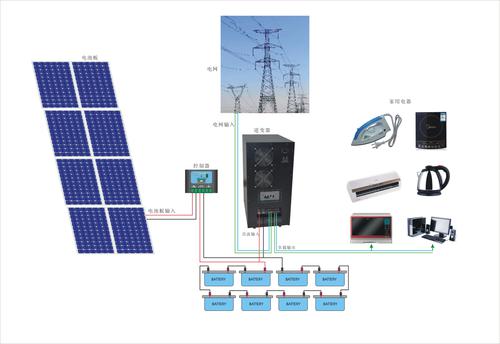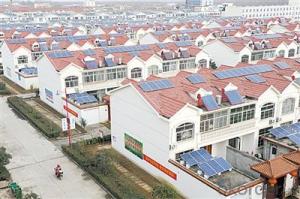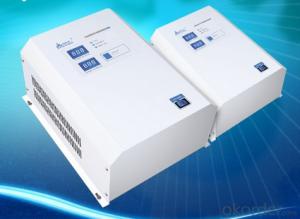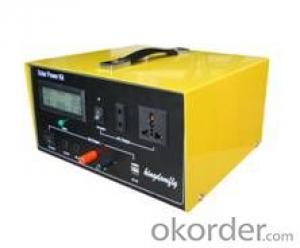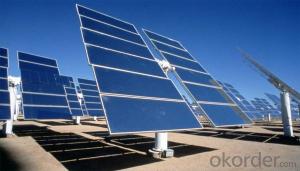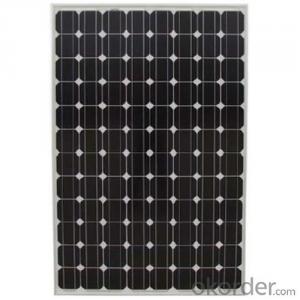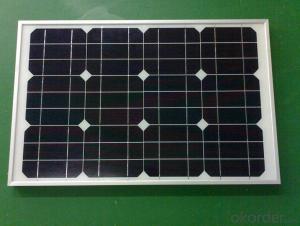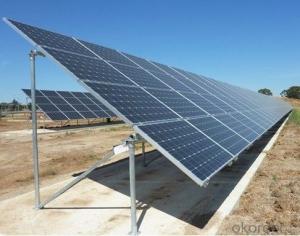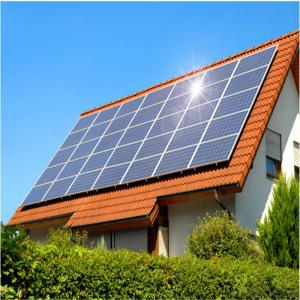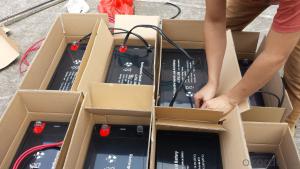Complete 24V 1000W solar panel systems
- Loading Port:
- Guangzhou
- Payment Terms:
- TT OR LC
- Min Order Qty:
- -
- Supply Capability:
- 1000sets set/month
OKorder Service Pledge
OKorder Financial Service
You Might Also Like
Hot sale solar panel system for home use 1000W
Features
Solar cell modules
It converts solar energy into electrical energy and the frames support solar panels.
Charge controller
It supplies direct current regulated from solar modules to the battery or inverter.
Stand-Alone Inverter
It supplies alternative current to loads after rectifying the direct current.
Battery
It supplies the electric power to loads through inverter in case the electric power generated from solar modules is in short supply or at night.
Complete 24V/1000W stand alone solar systems
5×200w poly solar panels//1×24V/50A solar charge controller//1×48V/3000W pure sine wave
inverter//4×12V/200Ah lead acid batteries//ground mounting brackets//50m PV cables for solar
panels connection//dual connectors for solar panels connection//connection cables for batteries.
average produce 6kwh power each day!!!
| 12V/200W Poly-crystalline Solar Panels | ||||||||
| Model: 200P Maximum power:200W Maximum power voltage:35V Maximum power current:5.71A Open circuit voltage:42.48V Short circuit current:6.29A Dimension:1350mm×1000mm×45mm Weight: 17.5kg Solar cells:48pieces(6×8)poly solar cells156mm×156mm;Grade A; CE certification Maximum systems voltage: 1000V | 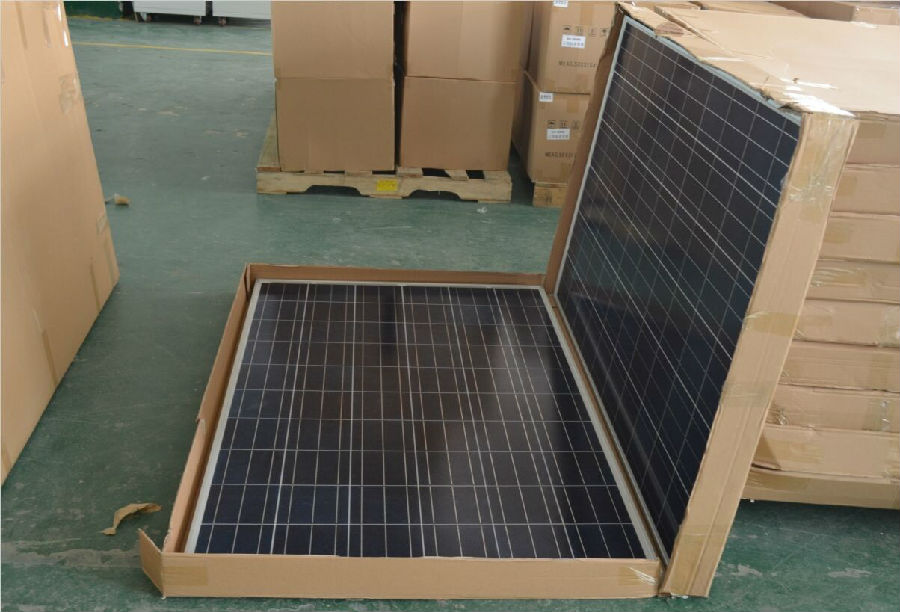 | |||||||
Wiring of solar panels: 1 panels in series, 5 strings in parallel | ||||||||
| 24V/50A solar charge controller | ||||||||
| Model:KF2450 Rated voltage: 24V Rated current: 50A Over-voltage protection 34V Over-discharge recover voltage: 25V working temperature: -20℃~45℃ Dimension: 184mm×110mm×57mm Weight: 0.66kg Features: battery switch | 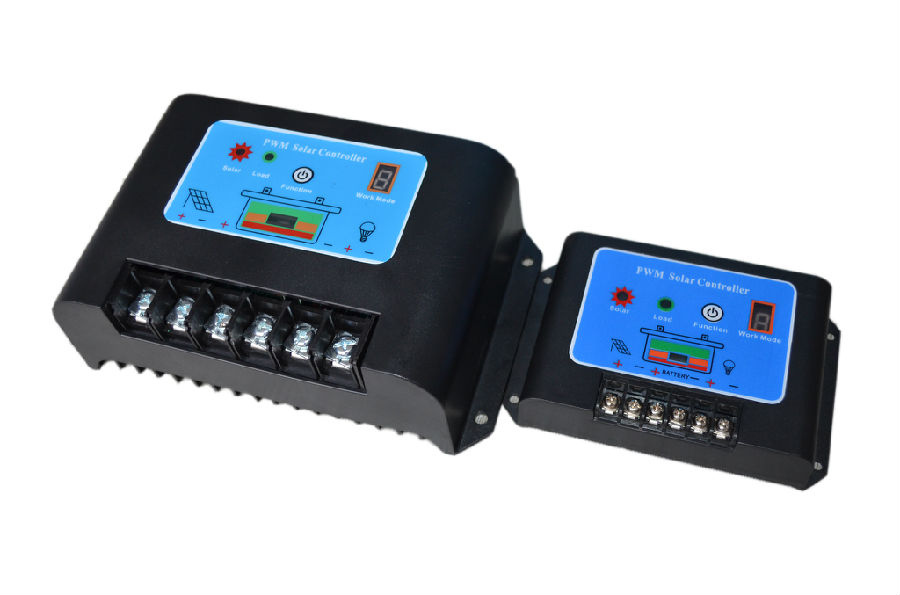 | |||||||
| Wiring of solar charge controller: firstly connect solar charge controller with battery bank, then connect solar charge controller with solar panels array, at last connect solar charge controller with loads or pure sine wave inverter | ||||||||
| 48V/3000W Pure Sine Wave Inverter | ||||||||
| Model:XD-NB10224 Rated input voltage:DC24V Input voltage range:75V~125V OR 145V~275V Output voltage:AC210V~AC240V Rated output power:1000W Maximum output power:2000W Output wave form: pure sine wave Dimension:396mm×190mm×240mm Weight:14kg. Working temperature: 0℃~40℃. Battery low voltage shutdown: DC21V | 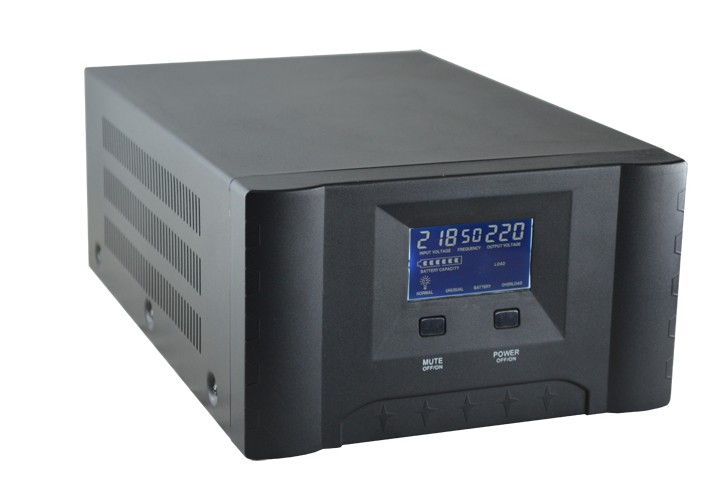 | |||||||
| 12V/200Ah deep cycle battery | ||||||||
| Deep cycle batteries in our stand alone solar systems have 2000 time charging-discharging cycle at 50% DOD. Gel batteries have better performance than lead acid batteries under cold temperature. besides, these battery are free-maintenance. |
| Package&shipment terms | |||||||||
| 1,We would pack all components into one plywood case and put much foam inside of plywood case, this packing way can make all components stand long distance transportation. 2,Because batteries are a kind of very heavy components and can't be allowed to transport by air, we have to choose sea transportation. though sea transportation would take more days to arrive, however you can save much postage. 3.We would ship the system to any bigger port near to customers, customers need to go to the port and pick up the system. |
More pictures about the solar panel system:
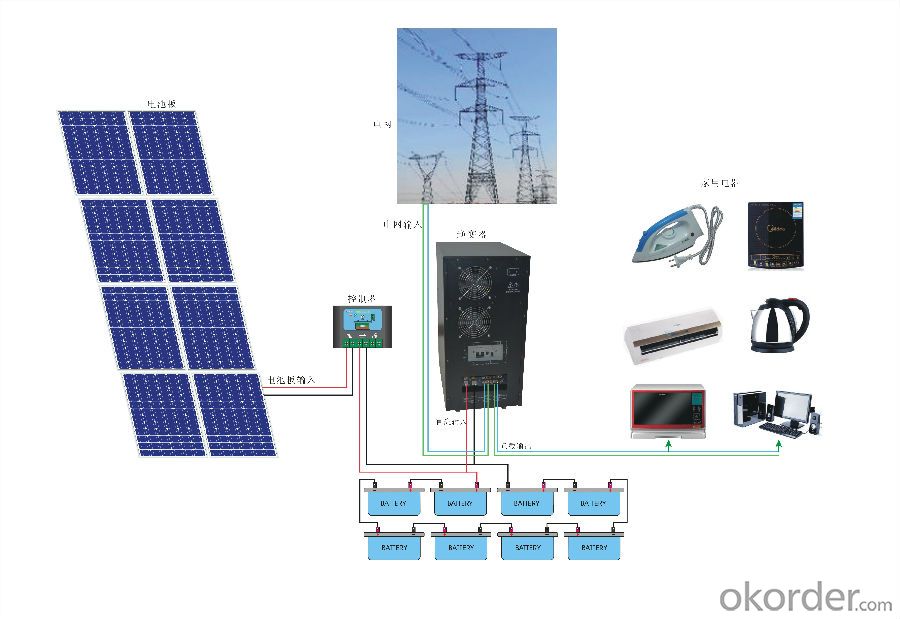
- Q: How much maintenance do solar energy systems require?
- Solar energy systems require minimal maintenance. The panels are designed to be durable and can last for decades with little to no maintenance. Occasionally cleaning the panels to remove dirt and debris is recommended, and checking the system's performance periodically is also advised. Overall, solar energy systems require very little ongoing maintenance.
- Q: Can solar energy systems be used for powering electric vehicle solar charging stations at rest areas?
- Yes, solar energy systems can be used for powering electric vehicle solar charging stations at rest areas. Solar panels can be installed at rest areas to capture sunlight and convert it into electricity. This electricity can then be used to power the charging stations, allowing electric vehicles to charge their batteries using clean and renewable energy. Solar charging stations provide an excellent opportunity to utilize solar energy in an efficient and sustainable manner, reducing the reliance on fossil fuels and lowering carbon emissions. Additionally, solar charging stations can be integrated with energy storage systems, such as batteries, to store excess electricity generated during the day for use during the night or on cloudy days. This ensures continuous availability of charging services, even when the sun is not shining. Overall, utilizing solar energy systems for powering electric vehicle charging stations at rest areas is an environmentally friendly and economically viable solution.
- Q: Can solar energy systems be used in off-grid locations?
- Yes, solar energy systems can definitely be used in off-grid locations. In fact, off-grid locations are often ideal for utilizing solar energy systems as they provide a sustainable and reliable source of electricity without relying on traditional power grids. Solar panels can be installed in remote areas to generate electricity and can be combined with battery storage systems to store excess energy for use during nighttime or cloudy days. This allows off-grid locations to have access to clean and renewable energy, reducing their dependence on fossil fuels and minimizing their environmental impact.
- Q: Do solar energy systems require a battery for storage?
- No, solar energy systems do not necessarily require a battery for storage.
- Q: Can a solar energy system be installed on a building with a clay tile roof?
- Yes, a solar energy system can be installed on a building with a clay tile roof. Clay tile roofs, although more challenging to work with compared to other roofing materials, can still accommodate solar panels. The installation process may require additional care and expertise to ensure the clay tiles are not damaged during the installation and that the solar panels are securely attached to the roof. It is essential to work with experienced solar installers who have knowledge and experience in working with clay tile roofs to ensure a successful installation.
- Q: How do solar energy systems affect property values?
- Solar energy systems can have a positive impact on property values. Studies show that homes equipped with solar panels tend to sell at a higher price and faster than those without. This is primarily because solar systems reduce or eliminate electricity bills, resulting in long-term savings for homeowners. Additionally, solar energy is seen as a desirable and eco-friendly feature, appealing to environmentally conscious buyers. Overall, investing in solar energy systems can increase property values and attract potential buyers.
- Q: Can solar energy systems be used in military applications?
- Yes, solar energy systems can be used in military applications. They offer a reliable and sustainable source of power that can be used to operate various equipment and facilities in remote or off-grid locations. Solar panels and batteries can be integrated into military bases, vehicles, and portable devices, providing energy independence and reducing reliance on traditional fuel sources. Additionally, solar energy systems offer a tactical advantage by minimizing the logistical challenges associated with fuel transportation and storage, making them an attractive option for military operations.
- Q: Can a solar energy system be installed on a government building or facility?
- Yes, a solar energy system can be installed on a government building or facility. In fact, many governments worldwide are actively promoting the adoption of renewable energy sources, including solar power, in order to reduce their carbon footprint and achieve sustainability goals. By installing solar panels on government buildings, they can generate clean and renewable electricity, reduce dependence on non-renewable energy sources, and potentially save money on energy costs in the long run.
- Q: Can solar energy systems be used for powering off-grid research stations in Antarctica?
- Yes, solar energy systems can be used for powering off-grid research stations in Antarctica. Solar panels can be installed to harness sunlight and convert it into electricity, providing a sustainable and reliable source of power in remote and isolated locations.
- Q: Can a solar energy system be installed on a data center or tech facility?
- Yes, a solar energy system can be installed on a data center or tech facility. In fact, many data centers and tech facilities are now embracing renewable energy sources like solar power to reduce their carbon footprint and lower their energy costs. A solar energy system can be installed on the roof or surrounding areas of the facility, utilizing the available space to generate clean and sustainable electricity. This not only helps the facility to become more environmentally friendly but also provides a reliable and independent source of power. Additionally, with advancements in solar technology, it is now possible to design and install solar systems that can cater to the high energy demands of data centers and tech facilities. By harnessing the power of the sun, these facilities can operate more sustainably and contribute to a greener future.
Send your message to us
Complete 24V 1000W solar panel systems
- Loading Port:
- Guangzhou
- Payment Terms:
- TT OR LC
- Min Order Qty:
- -
- Supply Capability:
- 1000sets set/month
OKorder Service Pledge
OKorder Financial Service
Similar products
Hot products
Hot Searches
Related keywords

